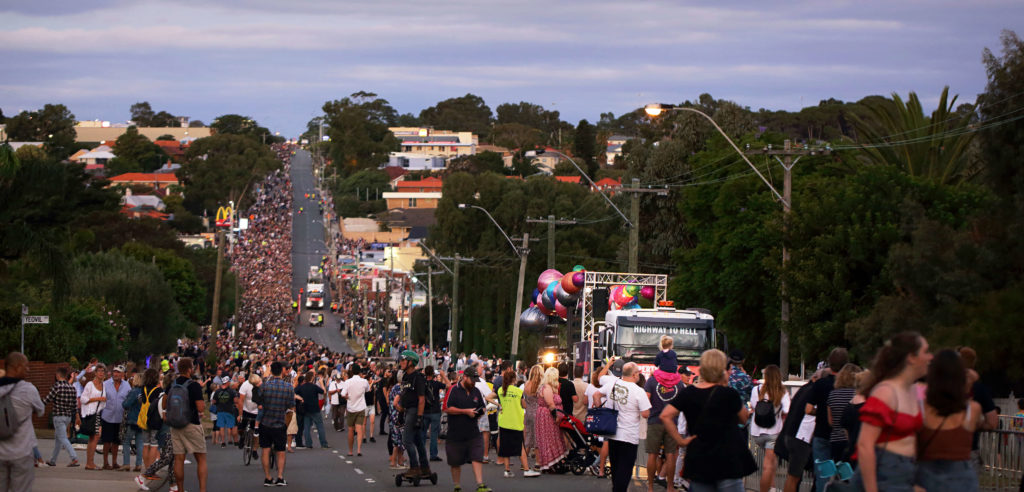More than 140,000 people turned out for the pinnacle event of Perth Festival earlier this year.
Fans lined Canning Highway to mark 40 years since AC/DC’s front man Bon Scott was laid to rest at Fremantle Cemetery.
Bon was fabled to have written the famous song ‘Highway to Hell’ about this stretch of highway.
The event was a huge success and went off without a hitch, due to the efforts of Perth Festival organisers in partnership with the Town of East Fremantle, City of Melville and the City of Fremantle, with events risk planning behind the scenes by LGIS’ senior risk consultant Michael Sparks and OSH program manager Emma Horsefield.
But, how do you go about evaluating the risks associated with an event as unique as the Highway to Hell?
The event saw Canning Highway become the world’s longest concert stage, with a slow moving convoy of trucks transporting performers along densely packed crowds held back by metal barriers.
Still, when people come to these events – they have an expectation that the event organisers have considered their duty of care, that the event will be family-friendly and that safety always remains a priority.
When assessing risk, most events are not as unique as they may first appear.
The same principles apply whether you’re looking at the Highway to Hell or the local farmers markets. Areas for consideration include the venue, stakeholders, toilets, crowd control, security, finance, catering, and event activities.
The key is to establish what success looks like in each area, identify what could go wrong, and then put plans in place to manage the consequences if things going badly.
Effectively, planning for the worst while expecting the best. This is where experienced risk assessors are invaluable. When done well, event organisers can confidently host their events knowing that they have covered every possible outcome.
Well run events knit the community together and increase trust in local government.
“It benefits the community to have a risk assessment before an event,” Michael said.
“Everyone has a duty of care to other people when performing their activities.
“This means that you must take ‘reasonable’ care in preventing an incident.
“The community expect this and you may be legally liable to compensate the suffered party if you have been negligent.”
Michael said there were some common areas missed when community events are planned.
“The most common risks overlooked by event planners are usually incidents that would cause the event to be delayed or cancelled,” he said.
The best way to prevent this is to have your event plan looked at by the professionals.
In addition, there is no event too small for a risk assessment.
“We’ve even had claims from quilters and art events,” Michael said.
In the grand scheme of things, these smaller events might not seem like much but it’s often the regular small events which are the bedrock of community and connect individuals from multiple groups.
Call Michael Sparks on 0417 331 514 or email [email protected] for more information on event risk.




